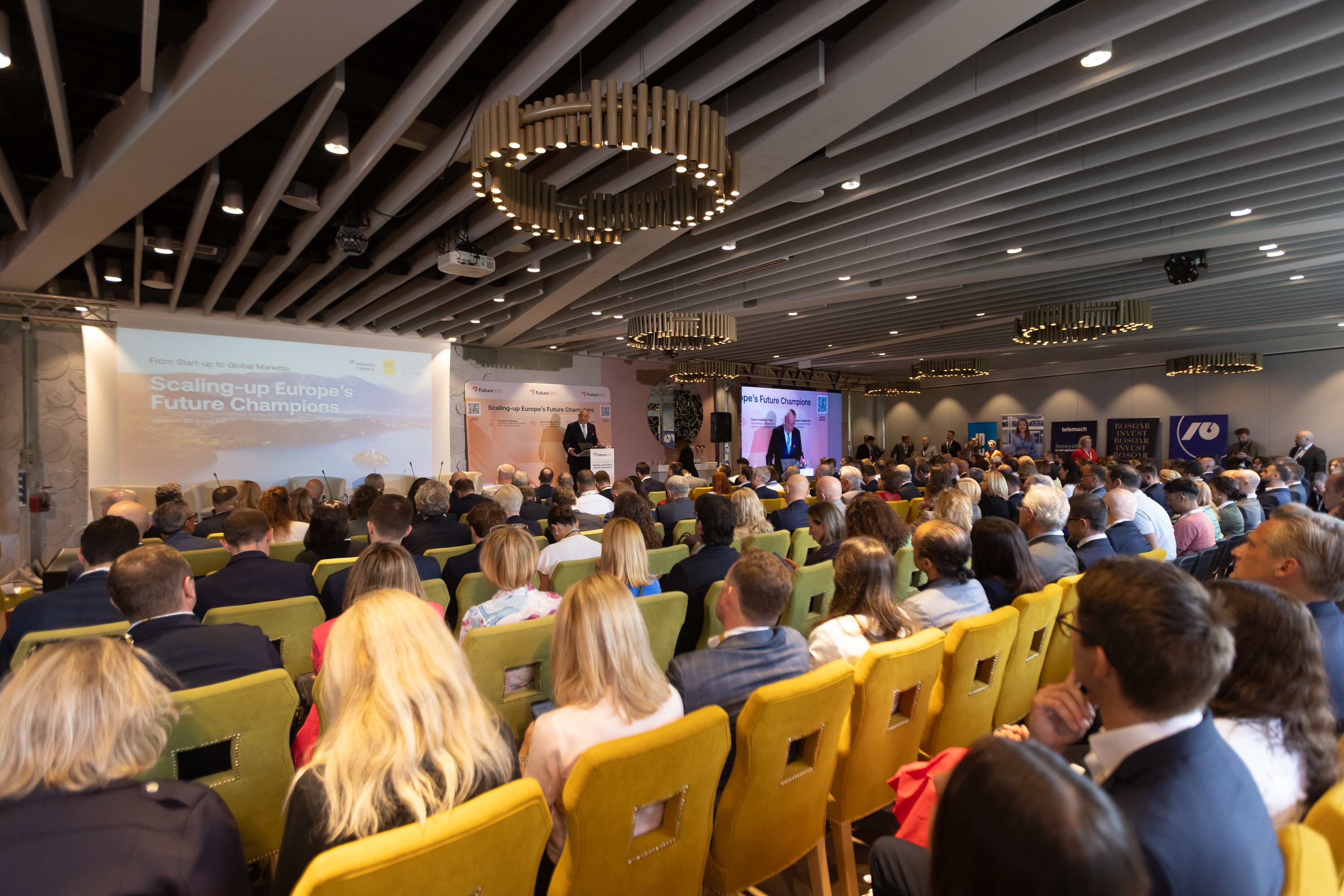
Bled, Slovenia, September 1, 2025 – The first Future 500 Forum concluded today in Bled, Slovenia, assembling a powerful coalition of policymakers, investors, and high-growth founders to redefine the momentum for Europe’s scale-ups and establish a platform to accelerate the continent’s most promising companies on their path to global leadership.
Co-led by the Atlantic Council and IEDC – Bled School of Management, and launched in collaboration with the Bled Strategic Forum, Podim, as the proud Startup Ecosystem Partner, and ISR – Institute for Strategic Solutions, the gathering brought together top European policymakers, investors, and founders of high-growth ventures. Over the course of the day, participants outlined how Europe can close its scale-up gap and unlock the continent’s entrepreneurial potential. The forum marked a pivotal first step toward a multi-year mission: identifying, accelerating, and empowering 500 of Europe’s most promising scale-ups.
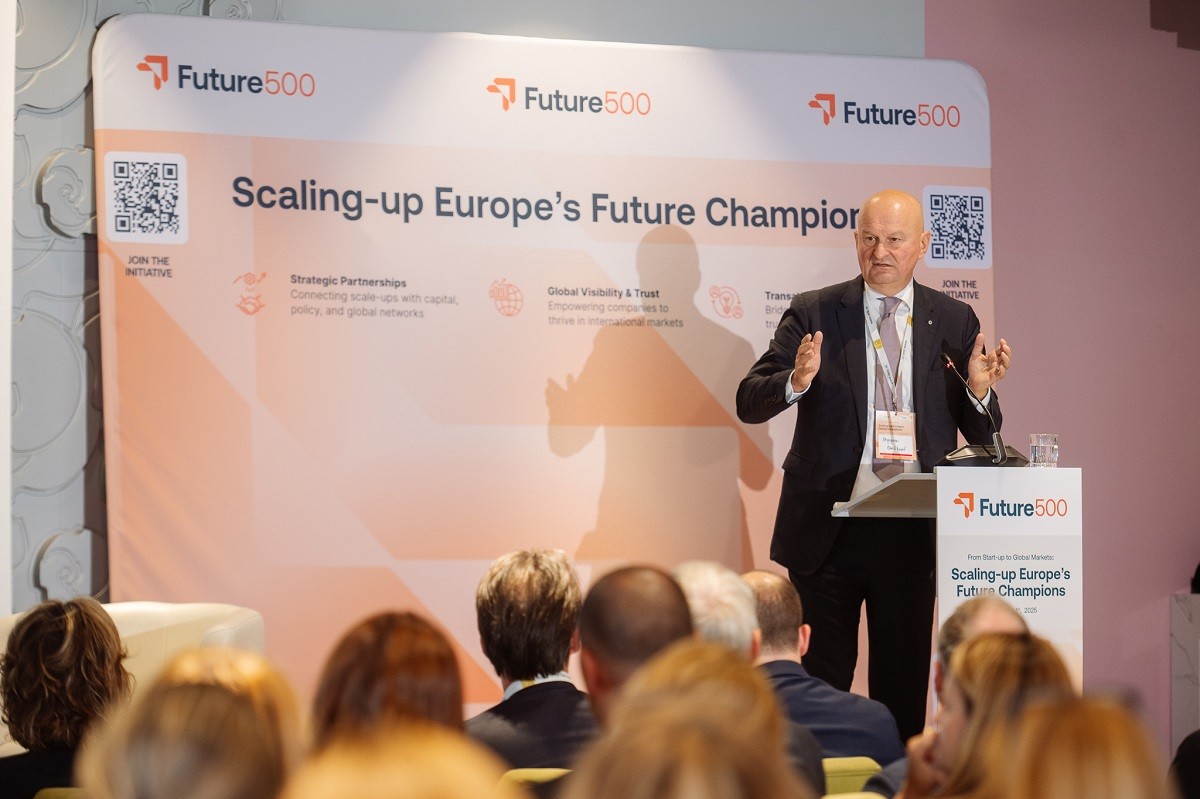
“Europe can no longer afford to let extraordinary founders remain under the radar. What we witnessed in Bled today is proof that the region has the ingenuity and determination to compete globally, provided that we match this talent with visibility, capital, and strong transatlantic partnerships. At Future 500, we are developing a scientifically robust selection methodology, in partnership with globally respected institutions – Oxford University, Deloitte, EY, and others – to identify the 500 most promising scale-ups, facilitate fundraising and network for European top companies to become global leaders. This is the missing link in Europe’s value chain.” emphasized Stjepan Orešković, Chair of IEDC’s Supervisory Board, founder of BOSQAR d.d., and founder of Future 500.
Scale-ups as the backbone of future growth
The program of the Future 500 Forum 2025 opened with a focus on the role of governments in supporting high-growth ventures, with Slovenia’s Minister of Economy, Tourism and Sport, Matjaž Han, underlining how founders are reshaping national and regional economies. He emphasized that “it is the responsibility of governments to create conditions that allow entrepreneurial ideas to grow – this means simpler and faster administrative procedures, access to financing for startups and scale-ups, connections with global investors, as well as with research and innovation.” European Commissioner Jozef Síkela emphasized the importance of strong partnerships and presented the EU’s Global Gateway strategy and its significance for new markets and access to capital, while Prime Minister of Albania Edi Rama discussed the future of Europe and his country’s pioneering digital agenda and AI strategy in a conversation with Stjepan Orešković, founder of Future 500.
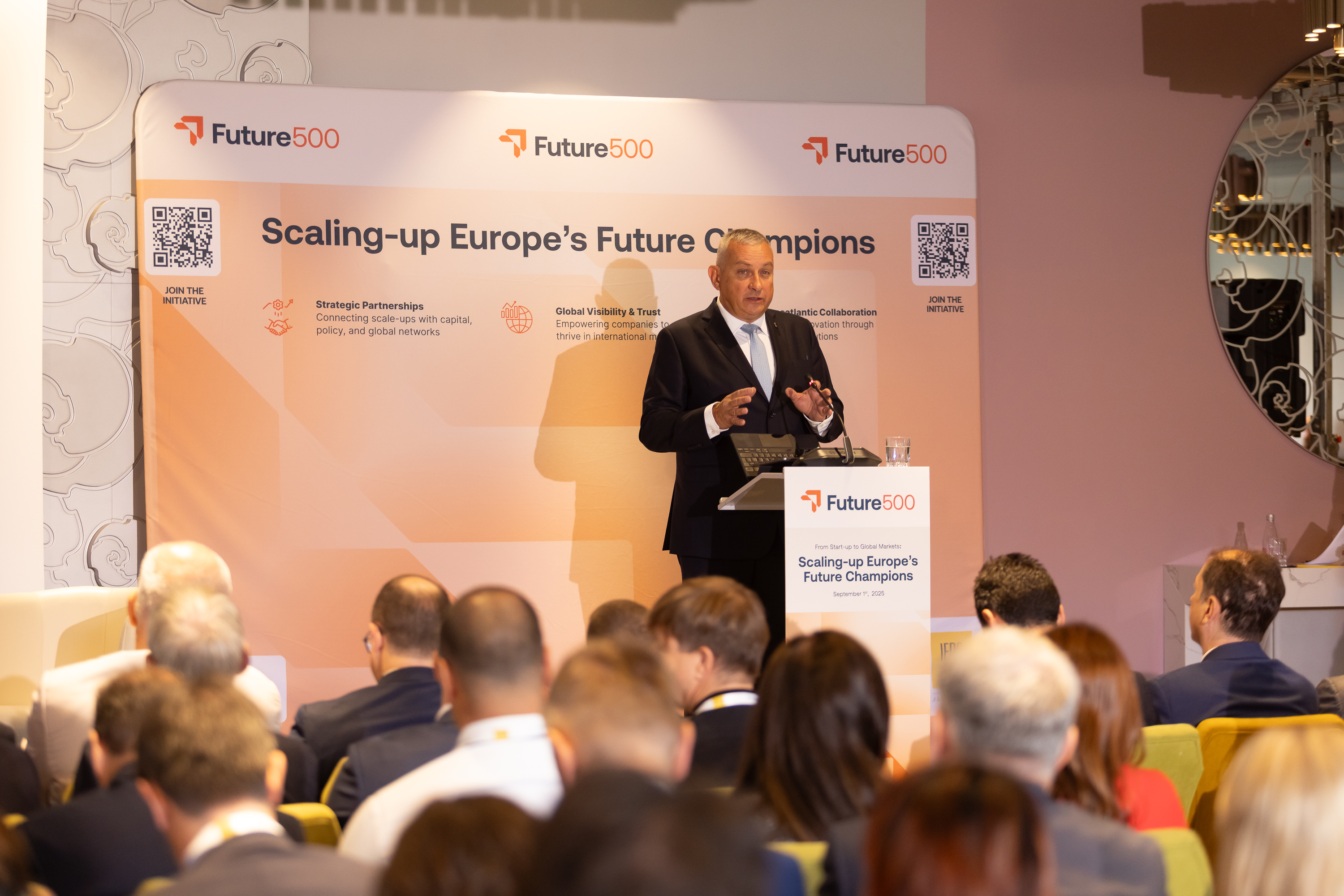
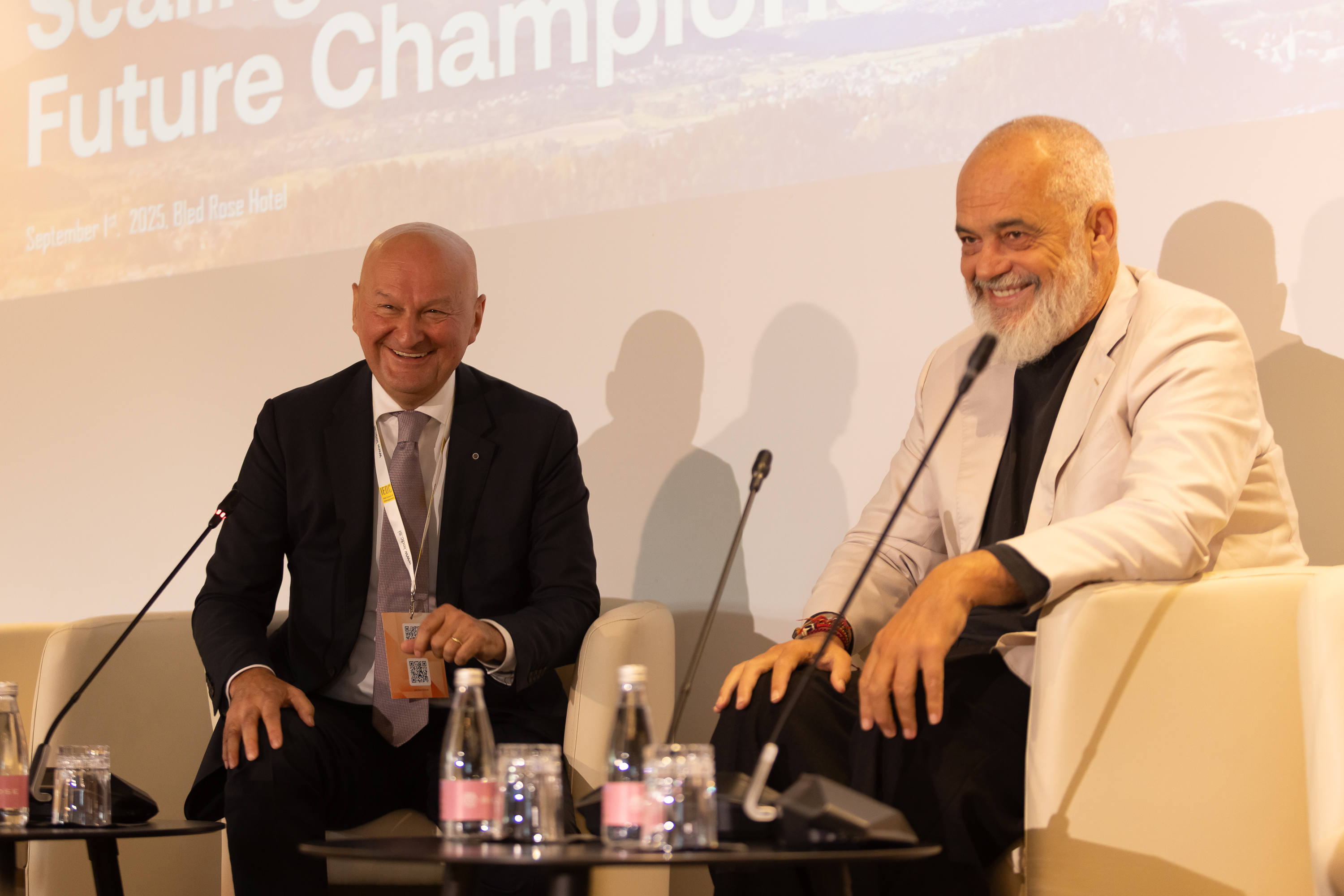
A panel of leading financiers, including Ingo Bleier (Chief Corporates and Markets Officer, Member of the Management Board, Erste Group), Robert Knorr (Managing Partner, MidEuropa), Alex Kostić (Vice Chairman and Owner, AIK Bank/MK Group), and Dinko Lucić (President of the Management Board, Privredna banka Zagreb), examined how Europe’s banking and investment community can provide the capital required to turn hidden champions into global leaders.
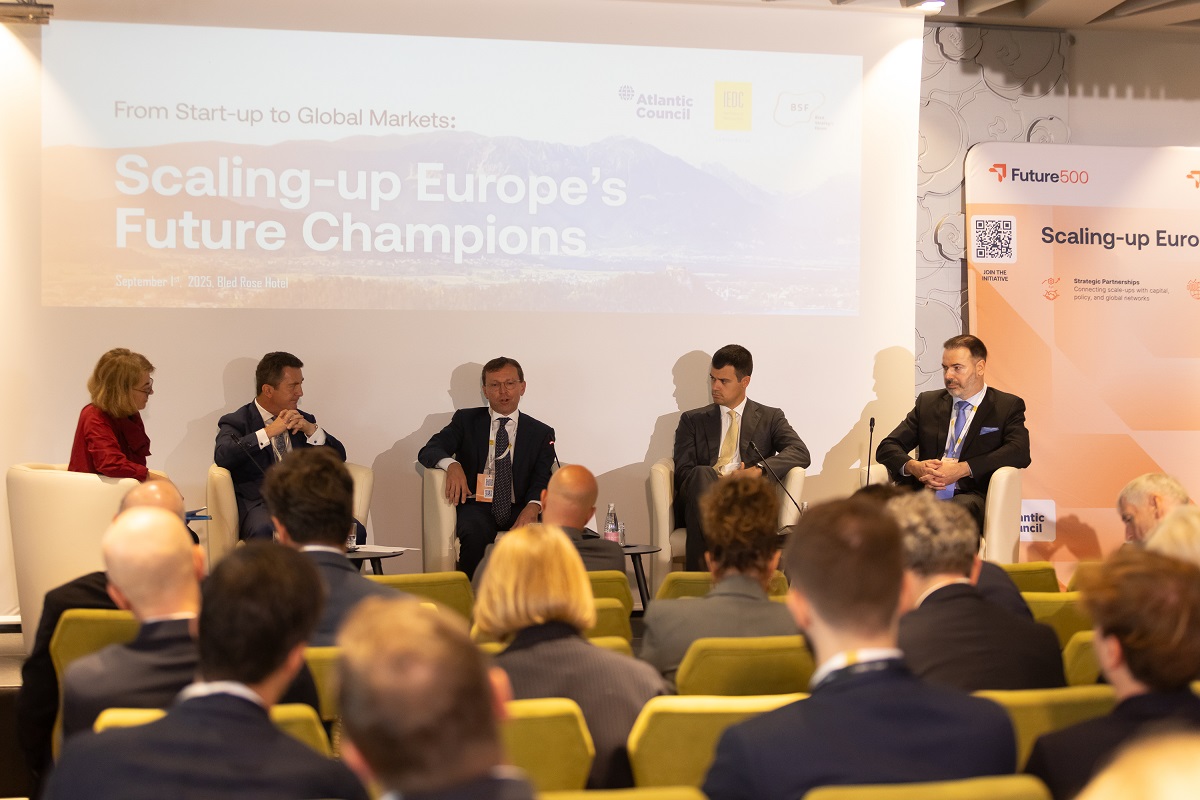
Another panel explored Europe’s scale-up infrastructure and institutional support, featuring Matevž Frangež (State Secretary, Ministry of the Economy, Slovenia), Guillaume Klossa (President, EuropaNova), Tamara Zajec Balažič (Director, SPIRIT Slovenia), and Miljan Ždrale (Regional Director for Central Europe, EBRD), who discussed the importance of sovereign tools and institutional investment to strengthen the ecosystem. Speakers of both panels agreed that a shift in mindset toward viewing entrepreneurship and success positively is essential, and that this should be accompanied by legislative changes to support investment and business growth.
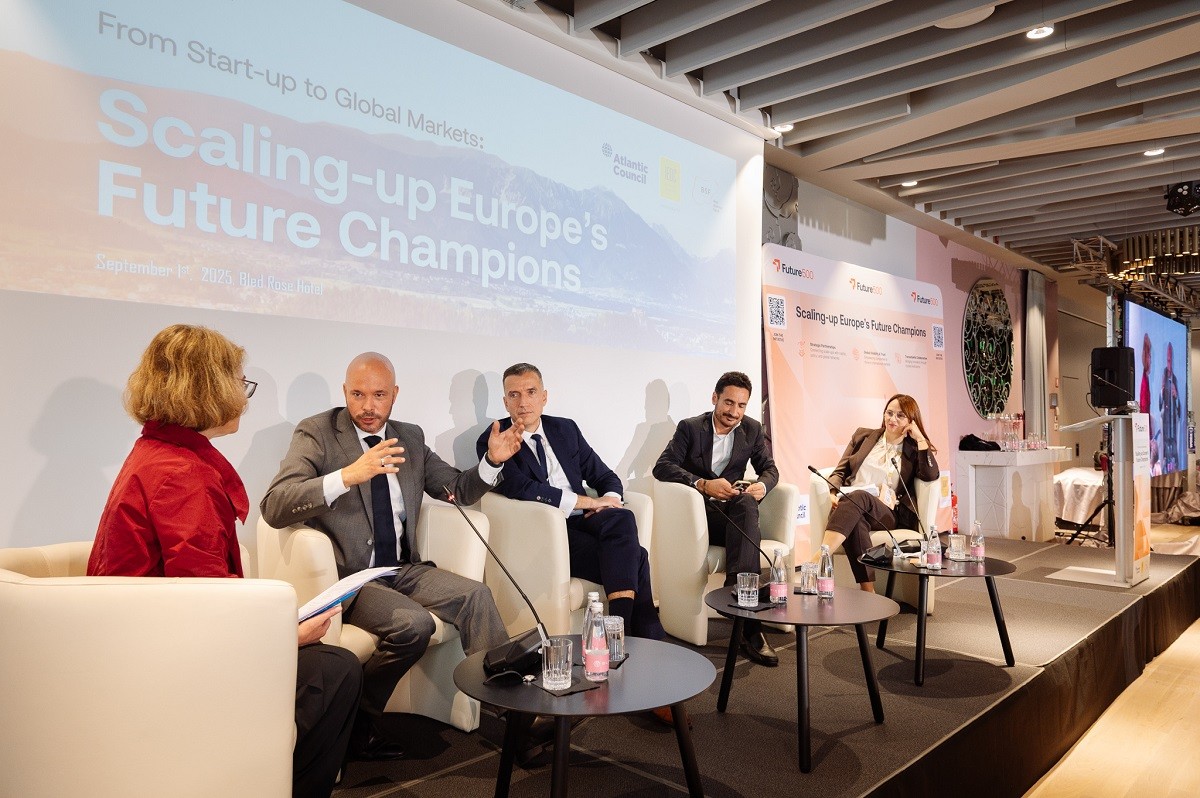
Discussions also addressed Europe’s exit dilemma, with insights from Tomislav Čizmić (CEO, Telemach), Gordan Kolak (President of the Management Board, Končar Group), Branko Milutinović (Founder & CEO, Nordeus), and Mark Pleško (Co-founder & CEO, Cosylab), highlighting strategies for scaling companies while retaining control and local impact. Branko Milutinović said that this region could benefit from a clearer vision for the future, especially for the younger generation, while Mark Pleško emphasized the importance of a truly unified common market: “Practically, Europe is not even a confederation of 27 states; it is a society of 27 states. When we talk about a common market, it should genuinely be a common market. And common laws, rules, etc.”
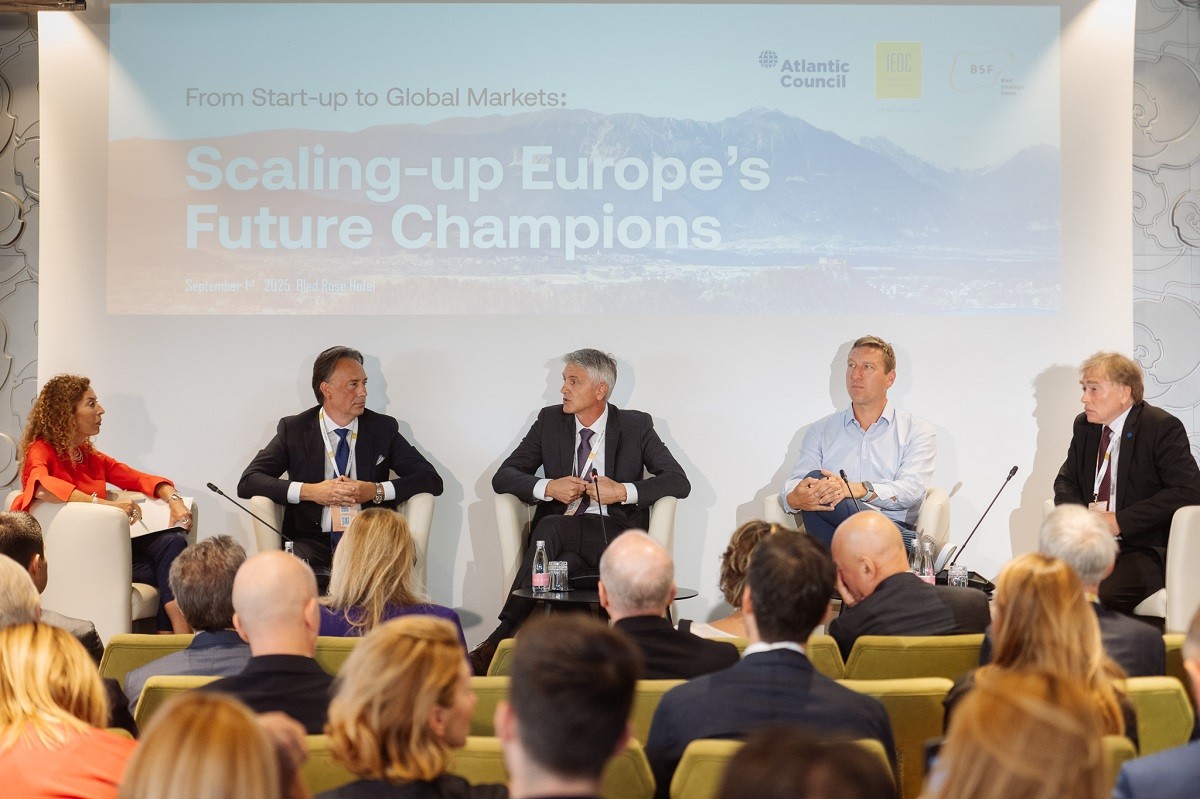
In a fireside conversation, founders Rafał Brzoska (CEO, InPost), Martina Dalić (President of the Management Board, Podravka d.d.; Former Minister of Finance and Deputy Prime Minister of Croatia), and Jure Knez (President & Founder, Dewesoft) shared personal insights and lessons from growing unicorns and industrial leaders across Central and Southeastern Europe. The Future 500 platform was formally launched with contributions from Mislav Ante Omazić (President of the Management Board, IEDC) and Igor Rudan (University of Oxford, Oxford Ideometrics), setting the stage for a pan-European mechanism to identify, empower, and promote high-potential scale-ups.
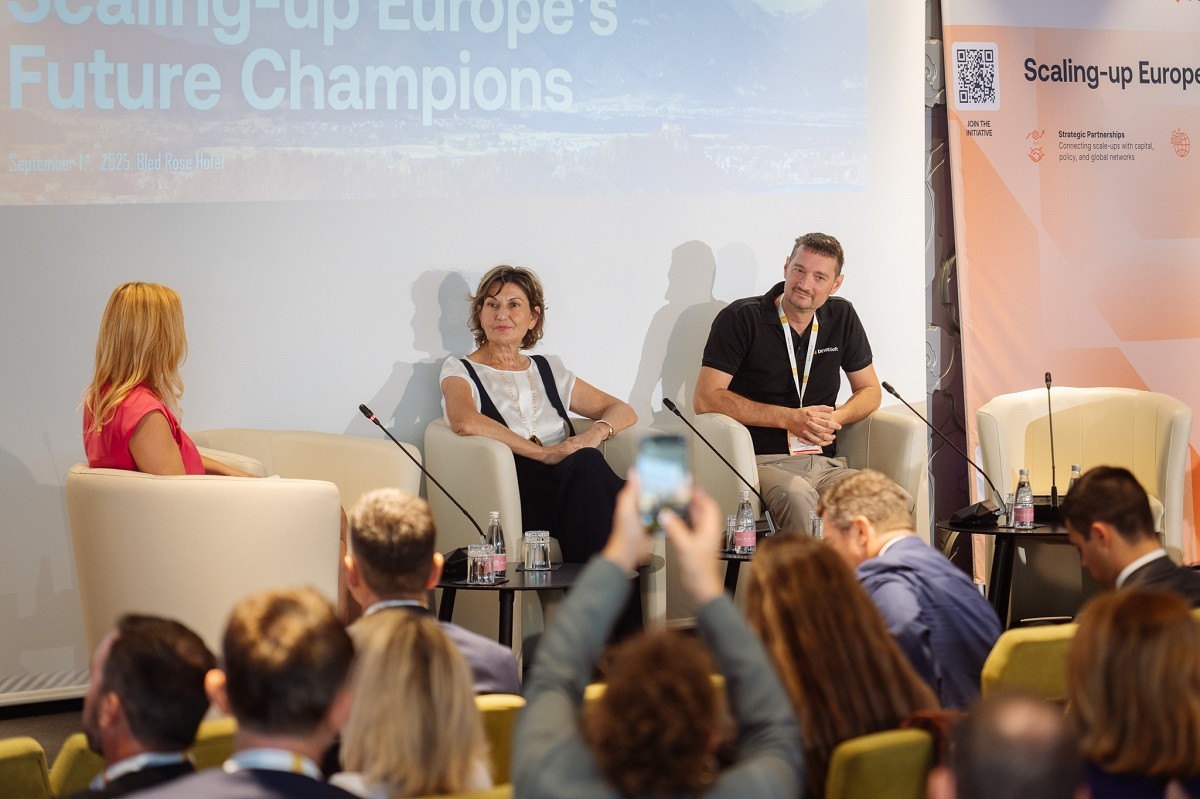

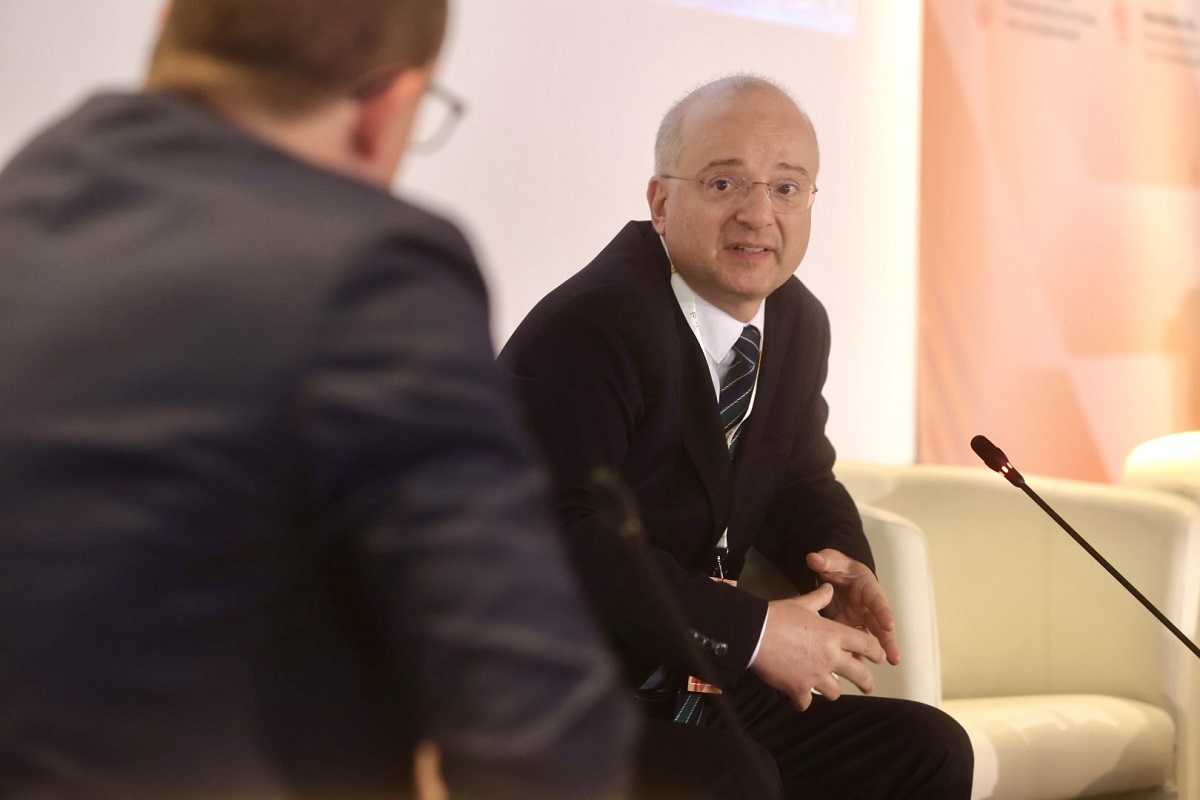
Fueling Europe’s next global champions
“The message from this forum is clear: Europe’s future competitiveness depends on scale-ups that can grow fast and think globally. By bringing together entrepreneurs, policymakers, and investors in one place, Future 500 has shown that the ecosystem is ready to collaborate and deliver lasting impact for the region and beyond,” concluded Jörn Fleck, Senior Director at the Atlantic Council’s Europe Center.
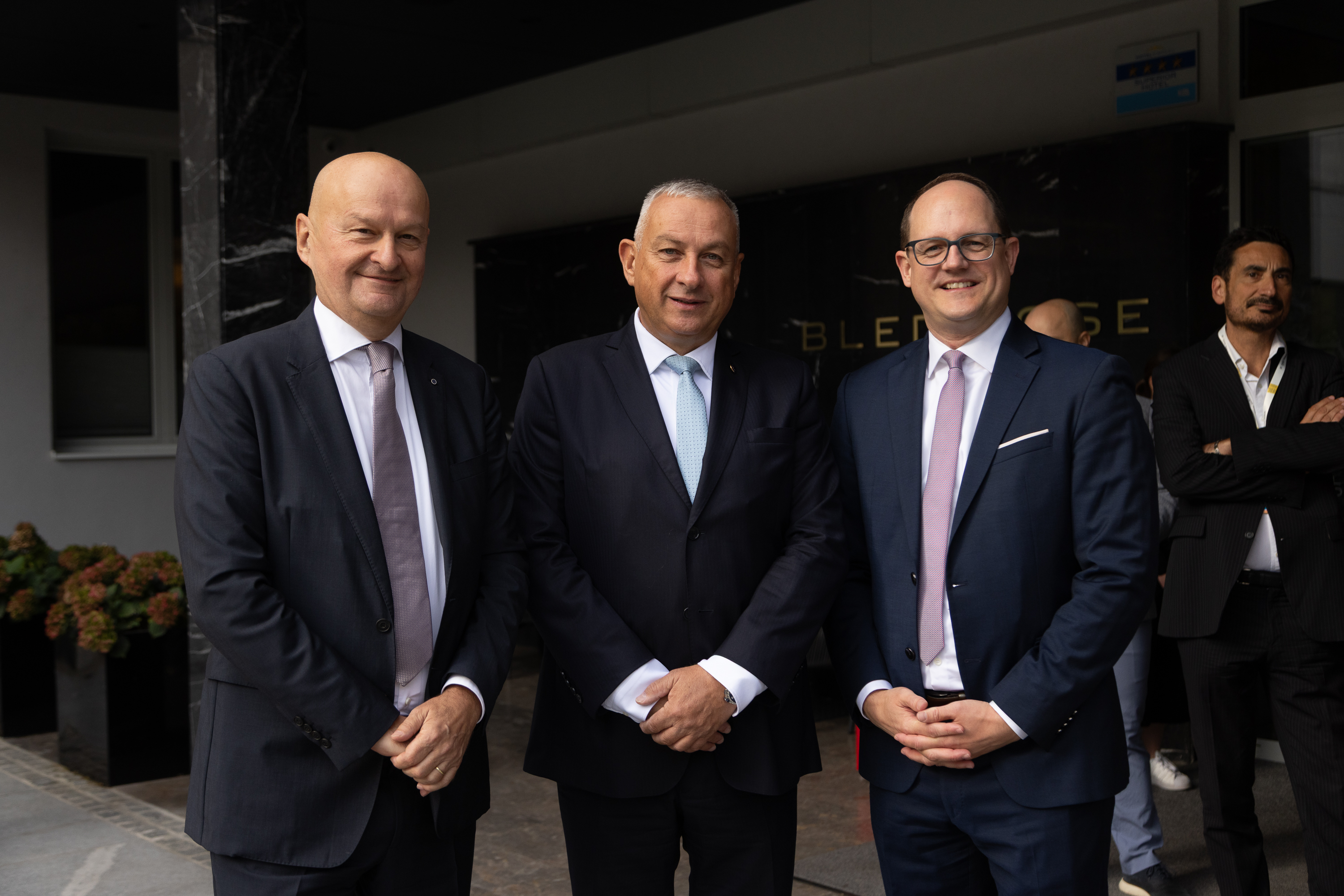
The Future 500 Forum thus not only marked the beginning of a new European initiative but also laid the foundation for a long-term ecosystem that will support scale-ups across the continent, ensuring that Europe’s future champions receive the resources they need to thrive globally. A strong team of experts will create a dedicated, professionally governed institutional framework to ensure the long-term sustainability of the initiative. “We are ready to invest 10,000 hours of work before we see one champion become a global winner – and we’re here for the long game. A scientifically robust selection methodology will be developed in partnership with globally respected institutions to identify the 500 most promising scale-ups. The first comprehensive list will be presented on September 1, 2026,” promised the founders of Future 500.
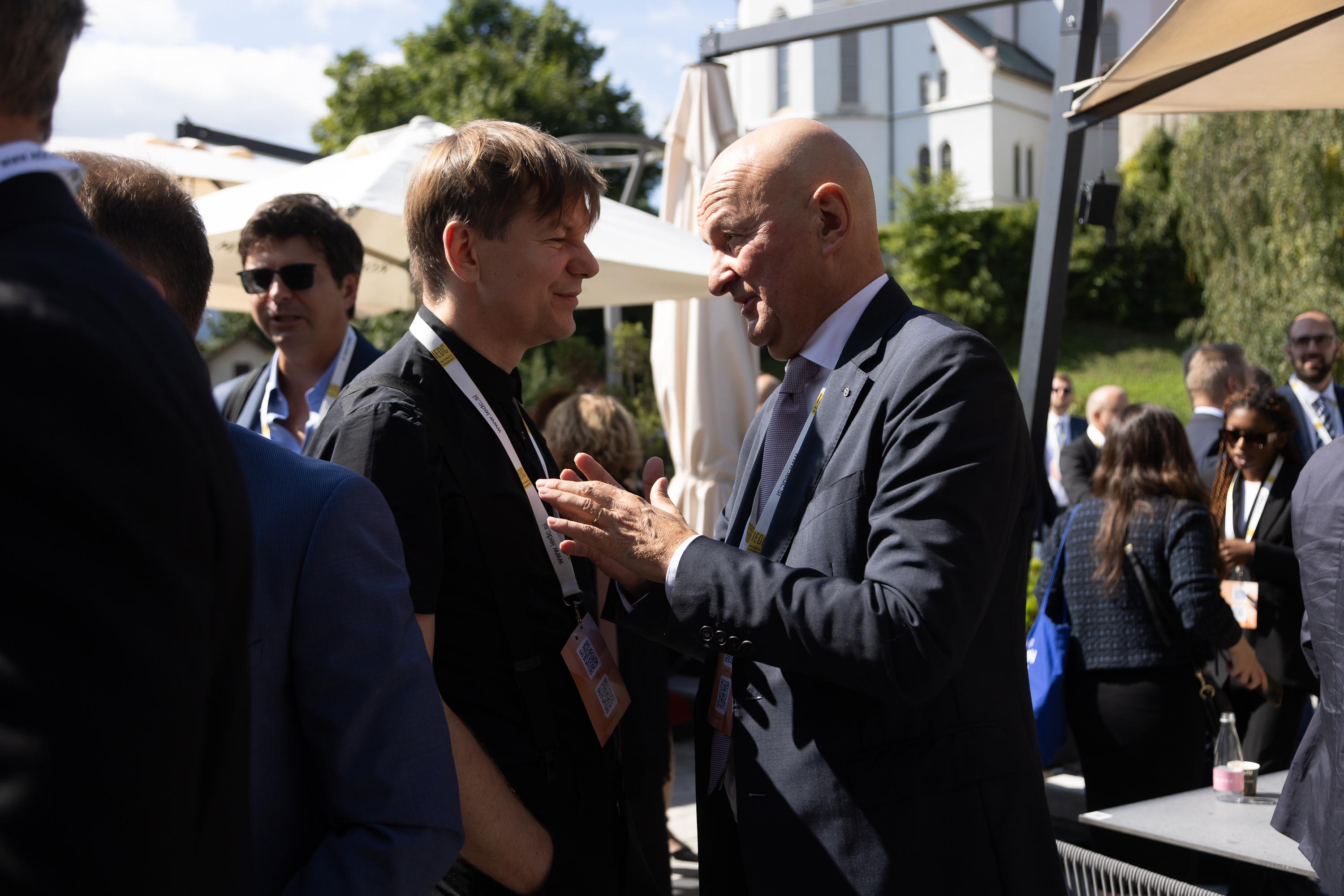

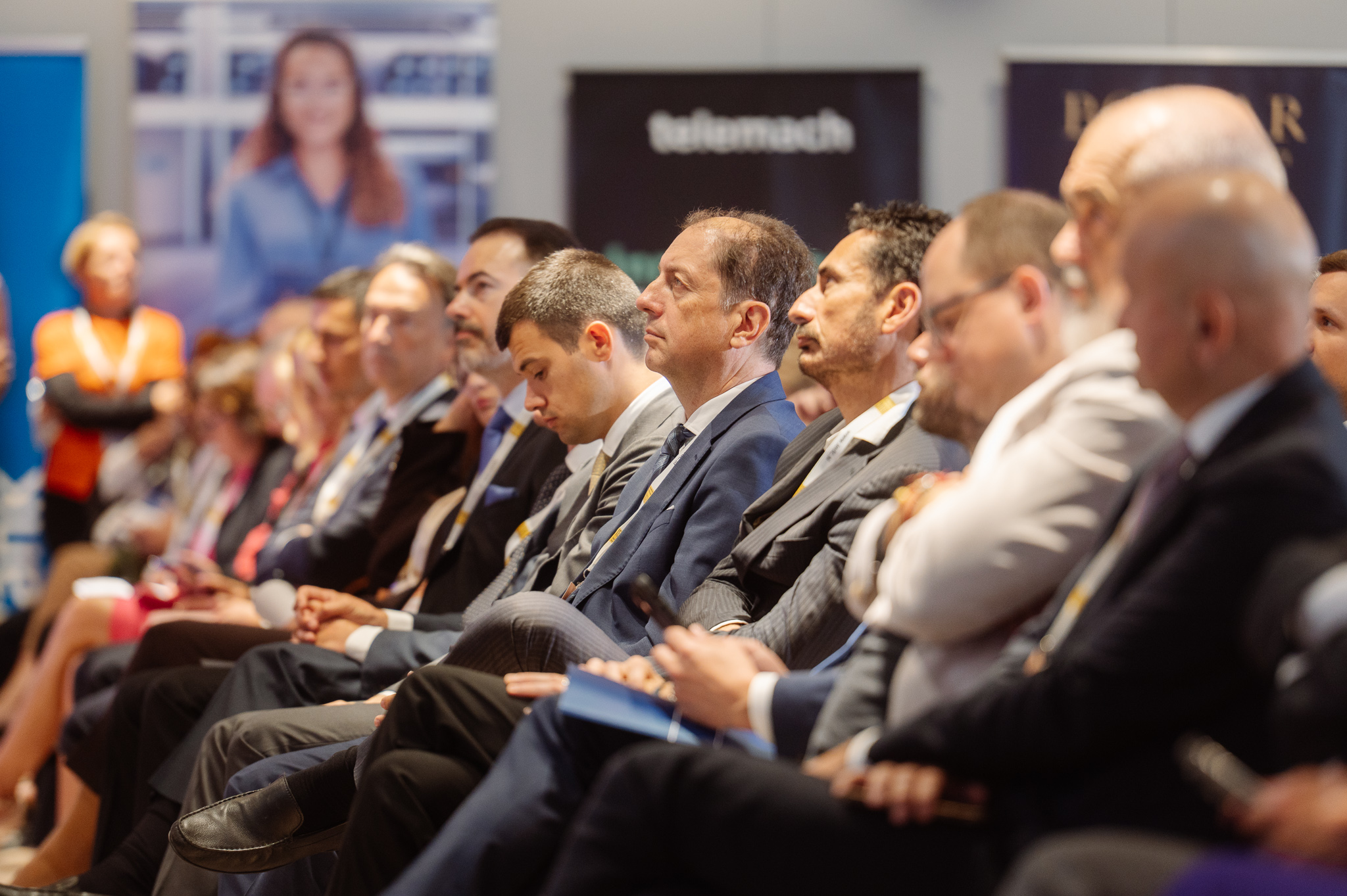
More information about the event and the Future 500 platform: future500forum.com.





